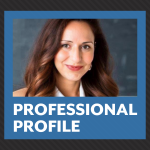Publishing Specialist & Research Integrity Trainer, Frontiers
 |
Summarize yourself and professional experience in a few sentences (where you’re from, course of study, where you currently work, job title).
Mine is a story of transition from academia to the science industry. I began my academic journey in Pisa where I studied ancient Greek literature, followed by earning a PhD in Classics and Anthropology in Paris. Until 2020, I taught at the university and conducted research in Oxford, Athens, and Geneva. Since 2021, I have been living in Florence, where I secured my first job in scholarly publishing as a Project Manager. In this role, I led projects in Open Access for an Italian company that supports university departments, learned societies, and university presses. In January 2023, I took a significant step forward by joining Frontiers as a Publishing Specialist, contributing to the Open Science mission.
Please describe the main function of your organization and your current responsibilities.
As a Publishing Specialist, I play a crucial role alongside the Chief Editors and Publishing Managers in establishing and overseeing the editorial boards for key journals within Frontiers’ Neuroscience portfolio. The objective is to ensure these boards align with the vision and mission of the respective journals, catering to the evolving needs and expertise of researchers. This involves identifying emerging research trends, adjusting board composition to meet journal objectives, and regularly updating boards to remain current in scientific discussions. Acting as the primary point of contact for researchers globally, I build and maintain relationships, ensuring effective acquisition of quality content for the journal by leveraging new and existing editorial strategies. Starting in August 2023, I also expanded my responsibilities to include the role of a Research Integrity Trainer. In this capacity, I provide training for researchers, research administrators, and science editors in various institutions and organizations.
How did you get into scholarly communications, and what was your path to your current role?
During the last year of my PhD, I realized that my career path would be situated behind the scenes of research, where I could contribute to both science policy and science outreach. This insight guided my search towards opportunities in scholarly communication. Luckily, I secured my initial position with a leading company in Italy focused on academic publishing projects. This experience laid the foundation for my current role in the field.
What are some of the surprises/obstacles that you’ve encountered during your career? One of the biggest challenges in my professional career has been overcoming bias against people with humanities backgrounds. Humanities teach invaluable – yet undervalued – metacognitive skills that help individuals understand social intricacies and navigate the job market. In my experience, I’ve discovered scholarly publishing to be an especially fulfilling arena for professionals with a humanities background. The refined analytical and critical thinking skills developed through humanities studies serve as valuable assets, particularly in this transitional period, and have the potential to be real game changers in the field.
What advice would you give to people interested in a career in scholarly communications?
The list of pieces of advice in this field is endless, but I’d start with the one my professor gave me in German when I was in Pisa: ”lesen, lesen, lesen” – read, read, read! Reading is a powerful strategy to stay aligned with the industry, whether you’re a newcomer or a seasoned professional. In my regular readings, I find The Scholarly Kitchen and James Butcher’s Journalology to be essential pillars. For those transitioning from an academic background, I also recommend Matteo Tardelli’s book “Beyond Academia: Strategies from PhDs who Made the Leap to Industry,” offering guidance and insights for making a successful transition to non-academic careers. Also, how could I forget to mention the SSP mentorship scheme? Participating in this program provides an excellent opportunity to be paired with an experienced professional who can offer personalized guidance and share their wealth of knowledge.

